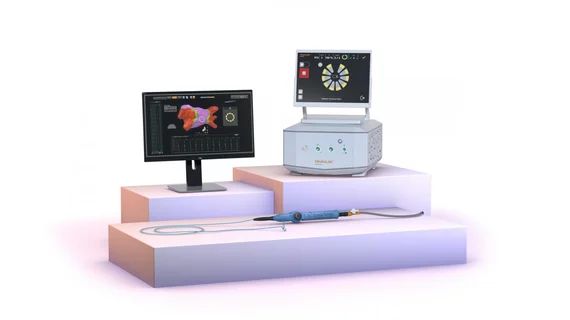Biosense Webster gains CE mark approval for new PFA system
Biosense Webster, part of Johnson & Johnson MedTech, has gained CE mark approval for its Varipulse pulsed field ablation (PFA) system, giving cardiologists in Europe a new treatment option for atrial fibrillation (AFib).
This new approval represents the latest sign that PFA, which uses electric pulses to ablate cardiac tissue as opposed to extreme temperatures, is gaining significant momentum around the world. In the United States, for example, Medtronic’s PulseSelect PFA system and Boston Scientific’s Farapulse PFA system both gained U.S. Food and Drug Administration (FDA) approval in recent months.
“We believe PFA has the potential to offer safer, more consistent and efficient workflows, and the Varipulse platform uniquely offers physicians a simple and reproducible PFA workflow with 3D visualization, in real-time,” Biosense Webster President Jasmina Brooks said in a statement.
“CE mark approval of the Varipulse Platform represents a significant advance in catheter ablation technology, allowing electrophysiologists to offer patients in Europe PFA treatment with real-time integrated 3D mapping,” added Tom De Potter, MD, associate director of the Cardiovascular Center at OLV Hospital Aalst in Belgium. “Significantly, the Varipulse Platform is fully integrated with the Carto 3 System, enabling a simplified workflow with minimal fluoroscopy time. Most importantly, the recent published data on the Varipulse Platform demonstrates the safety using PFA for patients being treated for AFib.”
Biosense Webster still working toward full FDA approval for Varipulse
While Biosense Webster has not yet gained FDA approval for Varipulse, the company recently shared positive data on its potential at AF Symposium 2024 in Boston. The company also announced two additional studies designed to further investigate Varipulse’s safety and effectiveness.
One of those new studies, VIRTUE, is a single-center, non-randomized clinical trial focused on AFib, atypical atrial flutter and other common atrial arrhythmias. The other, POLARIS, will explore the safety and effectiveness of pulmonary vein isolation and left atrial posterior wall ablation in patients who present with paroxysmal AFib and persistent AFib.

